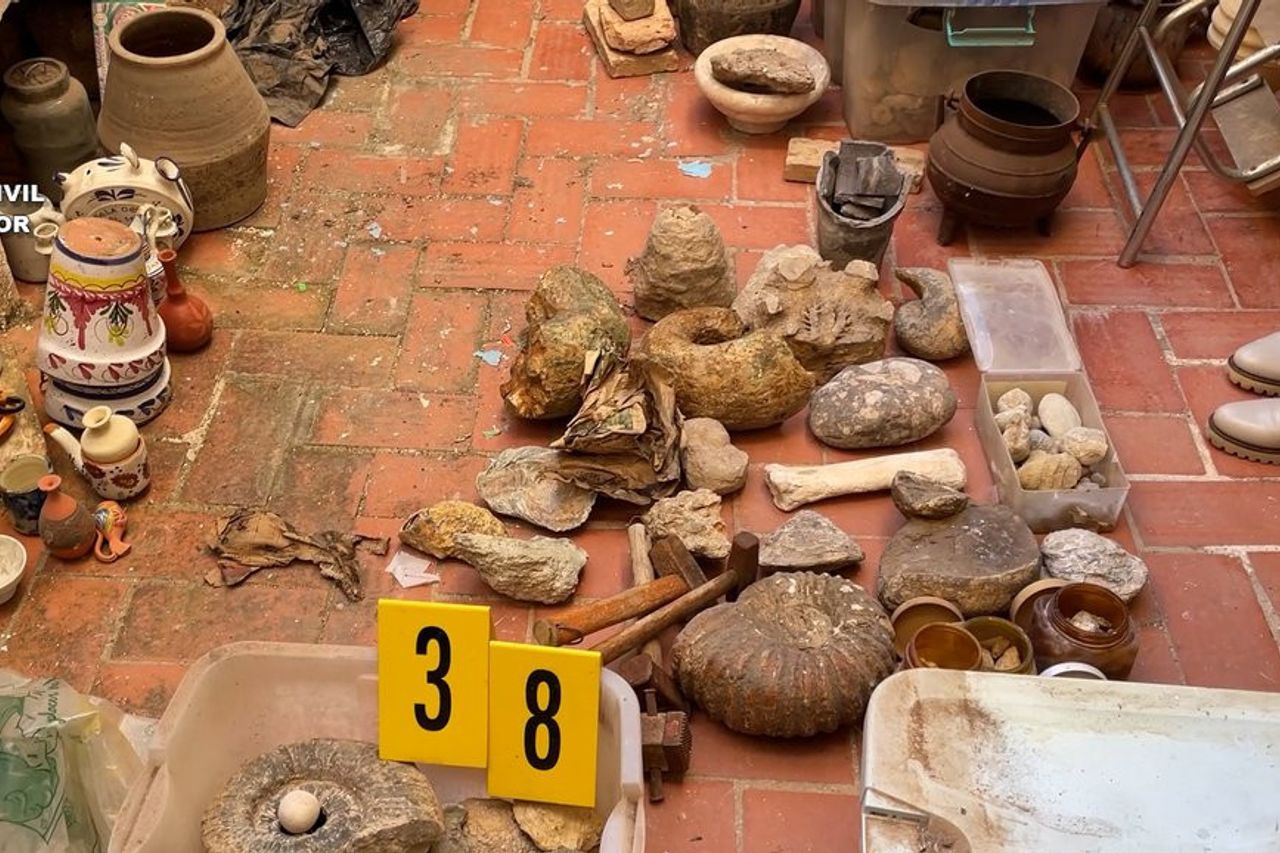Spanish Police Site Hundreds Of Marine Fossil Artifacts To 18th Century Weapons In Citizens' Houses

JAKARTA - Spanish police found hundreds of archaeological artifacts, including marine fossils, Bronze Age ceramics to 18th-century weapons, from two homes in southeastern province of Alicante.
More than 200 human bone fragments, some of which were between 4,000 and 5,000 years old, were also seized from the house, the Spanish Guardia Civil said in a statement.
The discovery follows a weeks-long investigation, known as Operation Osarium, directing police to what they refer to as "one of Alicante's largest illegal private collections".
Two men are currently being investigated for the misuse of goods with artistic, historical, cultural or scientific values, added Guardia Civil's statement.
Roman mosaic tiles, paleolitic stone tools and historic weaponry, including cannon balls and iron grenades, were among the 350 archaeological artifacts found.
After the initial discovery was made at a house in the village of Gata de Gogos, the home owners teamed up with the police and took them to a larger collection of properties in a nearby town of Drenia.
The occupants of the second home claimed that archaeological items found there had been inherited from relatives who had died, although police did not find any documentation "which justifies their ownership" of the artifact, the statement added.
However, investigators found a notebook containing handwriting from relatives of the deceased, showing exactly where the items came from.
Spanish Civil Guard said it was working with cultural department officials to research and catalog the items.
"Studies by specialists can help determine the origin and context of those pieces, thereby increasing their value, and even facilitating the location of new archaeological sites," explains Guardia Civil.
The discovery came a year after 36 stolen antiques, also found by Spain's Guardia Civil, were returned to Egypt.
The objects, including statues of goddesses and ancient jars, were seized at the Spanish port of Valencia, after being smuggled out of archaeological sites in 2014, according to Reuters.


